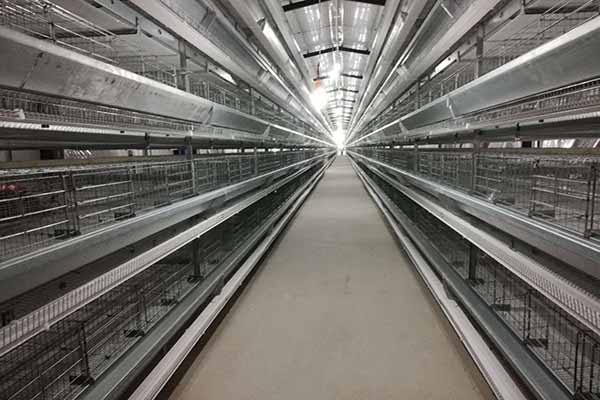What is the Vaccination Schedule for 70,000 Chickens in Tanzania?
In the bustling poultry industry of Tanzania, maintaining the health of a large flock is a meticulous task. For a farm housing 70,000 chickens, the vaccination schedule plays a crucial role in preventing diseases and ensuring a healthy, productive flock. Here’s a breakdown of the vaccination schedule for such a significant number of birds.
The Importance of Vaccination
Vaccination is a cornerstone of poultry health management. It helps to build immunity against various diseases, reducing the risk of outbreaks and the need for costly treatments. For a farm with 70,000 chickens, a well-planned vaccination schedule is essential to maintain the flock’s overall health.
Vaccination Schedule for 70,000 Chickens
1. Day-old Chicks: The vaccination process typically starts with day-old chicks. The initial vaccines are usually against common diseases like Marek’s disease and Newcastle disease. These vaccines are administered via injection or drop.
2. 2-3 Weeks Post-hatch: At this stage, chicks are vaccinated against other diseases such as fowlpox and infectious bronchitis. The vaccines may be in the form of spray or drops.
3. 6-8 Weeks Post-hatch: The next set of vaccines includes protection against diseases like avian influenza and salmonella. These are usually given through the drinking water or as drops.
4. 12 Weeks Post-hatch: The chickens are now ready for the next round of vaccines, which includes protection against E. coli and coccidiosis. These vaccines are often given via injection.
5. 16-18 Weeks Post-hatch: The final vaccination before processing or sale involves protecting against diseases like campylobacter and staphylococcus. These vaccines are typically administered via injection.
Implementing the Vaccination Schedule
1. Professional Assistance: It’s important to have a veterinarian or a poultry health specialist oversee the vaccination process. They can ensure that the correct vaccines are used and that the schedule is followed accurately.
2. Record Keeping: Maintaining detailed records of each vaccination is crucial. This helps in tracking the flock’s health and in planning future vaccination schedules.
3. Sanitation: Good sanitation practices are essential to prevent disease spread. Regular cleaning and disinfection of the vaccination equipment and areas where the chickens are housed are vital.
Why Choose Livi Machinery?
At Livi Machinery, we understand the challenges of managing a large poultry operation like the one in Tanzania. Our range of high-quality poultry equipment and services are designed to help you maintain a healthy flock.
– Automated Vaccination Systems: Our systems ensure accurate and efficient administration of vaccines, reducing the risk of human error.
– Sanitation Equipment: Our cleaning and disinfection equipment helps maintain a hygienic environment for your chickens.
– Customer Support: Our team of experts is always ready to assist you with any queries or technical issues.
If you’re looking to improve your poultry operation, contact us today. Let Livi Machinery be your partner in maintaining a healthy, productive flock.

